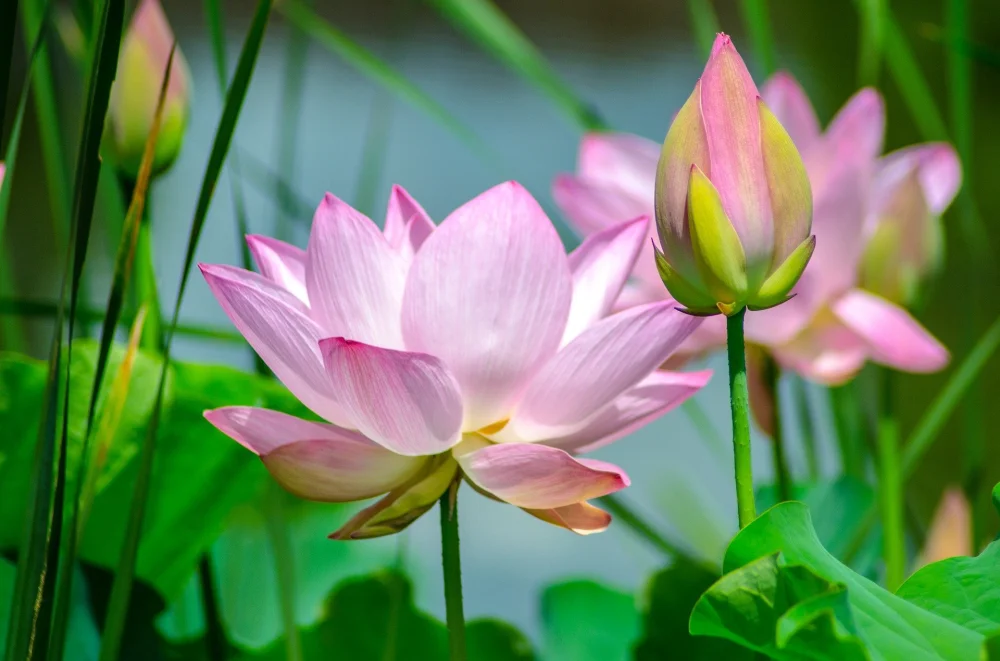Two short poems by Bai Juyi (772-846), a Chinese poet of the Tang dynasty. Both poems are titled On the Lake, 池上, Chí Shàng. The first poem is about the nearly imperceptible nature of a Buddhist monk. The second about a mischievous child trying to hide his crime.
One
Mountain monks playing chess
Hidden in some bamboo grove
A shiny screen, no one can see
Now and then, one hears a noise山僧对棋坐
局上竹阴清
映竹无人见
时闻下子声chí shàng
Shān sēng duì qí zuò,
Jú shàng zhú yīn qīng,
Yìng zhú wú rén jiàn
Shí wén xiàzi shēngOn the Lake, one, Bai Juyi
Two
A little boy in a little boat
Grabbing lotus flowers as he goes.
But how can he hide his tracks
Duckweed reveals his path小娃撐小艇
偷采白蓮回
不解藏蹤跡
浮萍一道開xiǎo wá chēng xiǎo tǐng
tōu cǎi báilián huí
bùjiě cáng zōngjì
fúpíng yí dào kāiOn the Lake, two, Bai Juyi
On the Lighter Side
At some point in Bai Juyi’s seventy four years, he became intensely interested in the study of Buddhism. These two poems are light-hearted looks at the religion. Buddhist monks for the most part engaged in meditation requiring quiet and concentration. A chess game being a bit of relaxation. Behind a screen of bamboo trees one would only here the click of the next move. The lotus flower is sacred in Buddhism. And anyone who has seen duckweed on a pond knows it is impossible to hide one’s way on the lake.
Meeting the Bird’s Nest Monk
The following story is told.
When Bai Juyi was Governor of Hangzhou, one day he chanced to come across the Bird’s Nest Monk (Niǎocháo chánshī, 鸟巢禅师) sitting high up in a tree. As the monk’s position seemed precarious, Bai Juyi said to him:
“Master, where you sit is quite dangerous.”
The monk replied:
“Your worries never end, your decisions are constantly required, and your conscience put to an unending test. Neither your body nor soul can rest. Isn’t that more dangerous?”












